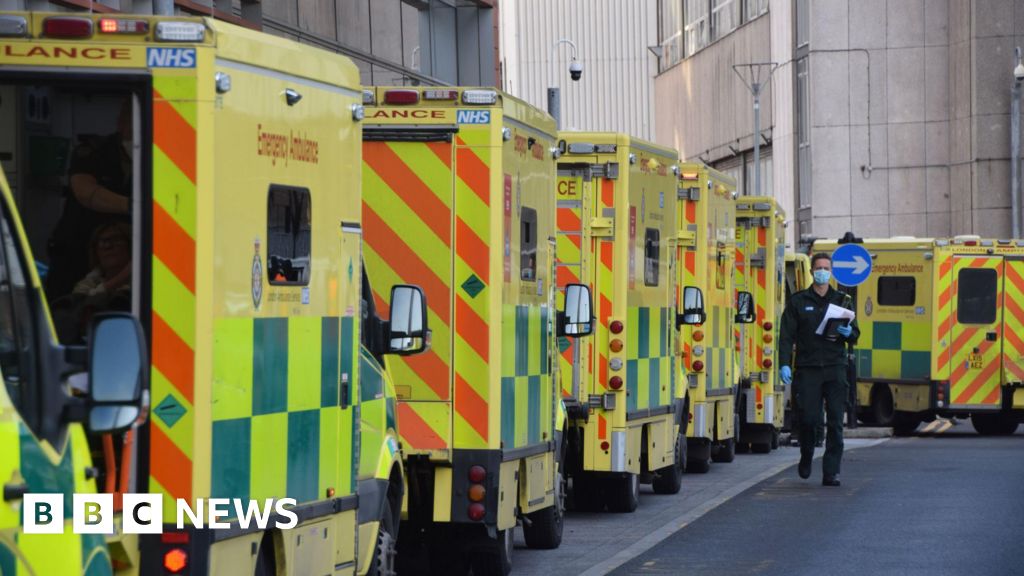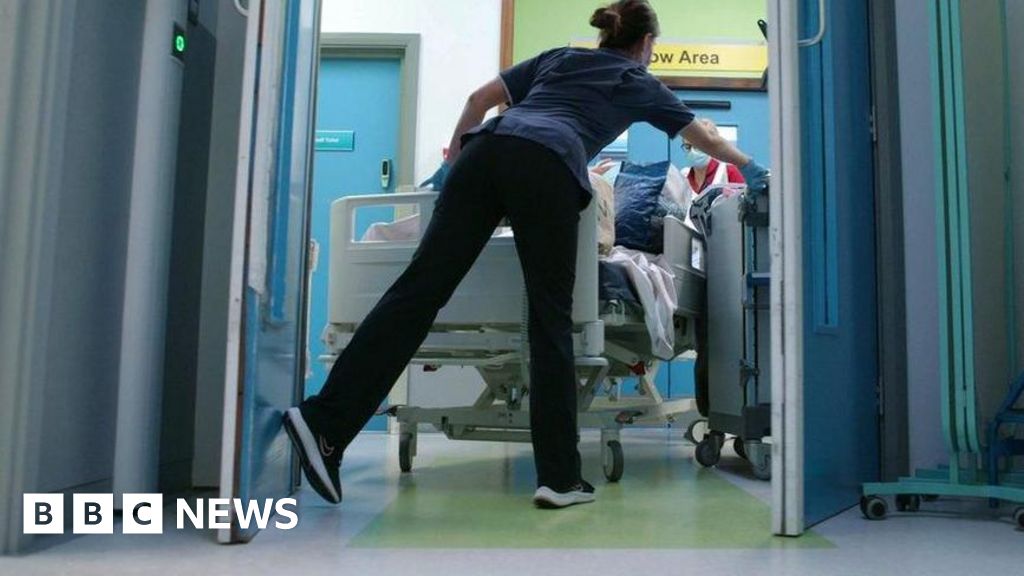ARTICLE AD BOX
By Ruth Clegg & Jayne McCubbin
BBC News
Phil Devine meets the parents of Tony Hickmott, who he says was the ''loneliest man in the hospital''
A whistle-blower in the case of an autistic man who has been detained in hospital since 2001 says he feels complicit in his "neglect and abuse".
A BBC investigation found 100 people with learning disabilities have been held in specialist hospitals for 20 years or more, including Tony Hickmott.
His parents are fighting to get him rehoused in the community.
A support worker at a hospital where Mr Hickmott has been detained said he was the "loneliest man in the hospital".
The company that ran the hospital until 2020 no longer exists and former directors, who the BBC contacted, declined to comment.
Mr Hickmott was sectioned under the Mental Health Act in 2001. His parents, Pam and Roy Hickmott, were told he would be treated for nine months, and then he would be able to return home.
He is now 44 - and although he was declared "fit for discharge" by psychiatrists in 2013, he is still waiting for authorities to find him a suitable home with the right level of care for his needs.
Last month, the BBC overturned a court order allowing the reporting of his story - one that is now in the hands of the Court of Protection.
'Locked up with criminals'
Following the report, Phil Devine came forward to talk about conditions at the hospital, which we are not naming for Mr Hickmott's care and wellbeing.
Mr Devine said he worked in the private, low-secure hospital as a cleaner and a support worker between 2015 and 2017.
It was run by a company that at the time was called the Huntercombe Group, until it was sold last year.
Phil has now met Tony's parents to give them an account of how he felt the system had failed their son
Some of the patients there had committed crimes, while others, like Mr Hickmott, were detained under the Mental Health Act.
Mr Devine said only Mr Hickmott's basic needs were met. "Almost like an animal, he was fed, watered and cleaned. If anything happened beyond that, wonderful, but if it didn't, then it was still okay."
"The management at the hospital said to us: 'Here's a care plan. At so and so time get breakfast, at so and so time get him dressed'. That's just a schedule - that's not a care plan," he said. "It was strict, it was rigid. But that was all Tony had."
Mr Devine said unlike many other patients in the hospital, Mr Hickmott had very little freedom. He spent all of his time in segregation.
Mr Devine believes this was primarily down to the risk of other patients in the hospital. He said: "He had never committed a crime, but here he was, living in solitary confinement."
He has now met Mr Hickmott's parents to give them an account of how he felt the system had failed their son.
Image source, Contributed
In 2020, the hospital was put into special measures because it did not always "meet the needs of complex patients". A report highlighted high levels of restraint and overuse of medication, a lack of qualified and competent staff and an increase of violence on many wards.
The hospital has now been taken out of special measures but still "requires improvement", according to the Care Quality Commission.
'Homes not hospitals'
Mr Hickmott is not alone in his detention. There are currently 2,070 patients held in hospitals and other secure settings across England. Some 100 of those have been detained for more than 20 years.
In 2015, the government promised "homes not hospitals" when it launched its Transforming Care programme in the wake of the abuse and neglect scandal uncovered by the BBC at Winterbourne View specialist hospital, near Bristol.
It has repeatedly missed its targets to close beds and move people close to home, back in their community with the right care and independence.
The Huntercombe Group, which ran the hospital, was sold in late 2020 by its parent company, Four Seasons, which is currently in administration.
Tony was sectioned under the Mental Health Act in 2001
While the name still exists, the previous company is no longer in existence.
In a statement, the group said: "The Huntercombe Group that ran this hospital up to the end of 2020 are a different legal entity to the current Huntercombe Group, who were not established at the time and therefore not involved in providing services.
"All patient records from the hospital are held by the previous owners of the former group, and as such the current Huntercombe Group hold no records of patients."
A spokesperson for the NHS said it was working closely with Tony, his family and local commissioners to meet his complex care needs.
It said the number of people with a learning disability or autism who were in a mental health inpatient setting had reduced by 28% since March 2015.

 3 years ago
88
3 years ago
88








 English (US) ·
English (US) ·